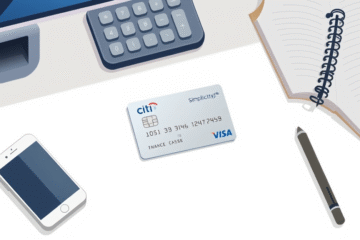Creating an Effective Budget is one of the most crucial steps toward achieving financial stability.
In today’s complex financial landscape, having a well-planned budget is not just helpful—it’s essential for success.
This comprehensive guide will explore how to create a personalized budgeting system that aligns with your financial goals and lifestyle.
We’ll break down the fundamental components of budgeting and provide practical strategies to help you take control of your finances.
Importance of Budgeting
Creating an effective budget is crucial in personal finance for establishing control and stability over your financial life. When you implement a structured budget, it provides you with a roadmap to monitor and manage your monthly expenditures. Budgeting allows for informed spending decisions, ensuring that your money is allocated to priority areas first.
The benefits of budgeting in everyday life are numerous and impactful:
- Gaining control over your spending habits
- Prioritizing essential expenses to achieve financial goals
- Avoiding unnecessary debt accumulation
- Saving money for future aspirations
- Providing a clear financial picture for informed decision-making
Transitioning from understanding your spending habits, it’s vital to grasp your income and expenses. Beginning with listing all sources of income, you’ll better understand the resources at your disposal. Categorizing your costs into fixed and variable allows you to pinpoint areas for potential savings and adjustments.
Regularly reviewing these categories ensures that your budget remains relevant and effective. It helps you to quickly identify and correct any financial inconsistencies. In summary, effective budgeting isn’t just about recording numbers—it’s about empowering yourself with the ability to shape your financial future.
Understanding Your Income and Expenses
To accurately assess your monthly income and expenses, start by identifying all your income sources and categorizing your expenses.
Understanding the difference between fixed and variable expenses is critical for a balanced budget.
Relevant expenses need classification for proper tracking.
- Fixed Costs: rent or mortgage, insurance premiums, utilities, and internet bills.
- Variable Costs: groceries, dining out, entertainment, and clothing.
Use a table to compare different income types and expenses for clarity.
| Income Source | Expense Type |
|---|---|
| Salary | Fixed: Rent |
| Freelance | Variable: Groceries |
| Investments | Fixed: Insurance |
Keep regular assessment for a realistic budget. Frequent evaluation helps in understanding financial health.
Use Budget Tools to Facilitate Planning and achieve financial goals more effectively.
Keep tracking changes in accurate financial health for financial success.
Categorizing Fixed and Variable Costs
Fixed costs are expenses that do not change regardless of the level of goods or services produced, such as rent or mortgage payments.
Variable costs, on the other hand, fluctuate based on production or sales volumes, such as raw materials and direct labor costs.
Determine your variable costs efficiently.
Understanding the distinction between these two categories is essential for effective budget management.
A clear comparison can be illustrated through examples.
| Fixed Costs | Variable Costs |
|---|---|
| Rent | Utility Bills |
| Insurance Premiums | Groceries |
| Mortgage Payments | Fuel Costs |
This table visually contrasts fixed and variable expenses to aid in budgeting decisions.
Careful categorization of these expenses is crucial to manage your finances effectively.
Further, institutions like REDF Workshop provide comprehensive resources on cost analysis.
Setting and Tracking Financial Goals
Set realistic financial goals to maintain an effective budget, ensuring financial stability. Start by evaluating your current financial health, identifying areas needing improvement.
Consider using the RAMSEY Solutions Guide on Financial Goals for further insights. Break your goals into short-term, medium-term, and long-term categories for better clarity.
As you set them, remember to remain specific and measurable. A widely respected financial expert emphasizes, “Regularly setting tangible goals provides a strong budgeting framework.” This assertively highlights its role in successful financial management.
“Properly tracking and reevaluating financial goals ensures a structured, adaptable budgeting process.” – Financial Adviser Quote
Utilize downloadable templates for efficient goal tracking, available from the Sorted’s Planning and Budgeting. This tool aids in updating and adjusting goals as needed.
By following these steps, you set clear objectives, stay on target, and uphold financial discipline. Integrate these practices consistently over time to achieve unlike any before.
Regularly Reviewing and Adjusting Your Budget
Regularly reviewing and adjusting your budget is crucial to ensuring your financial plan remains effective and aligned with your goals.
Changes in income, unexpected expenses, or shifts in priorities require a fresh look at your budget. Use the following steps to guide your budget reviews:
- Collect financial data, including bank statements, receipts, and bills to get an accurate picture of your income and expenses.
- Compare actual spending against budgeted amounts to identify discrepancies and areas for improvement.
- Analyze spending patterns to find opportunities for cost savings or reallocation of funds.
- Adjust category limits to better reflect your current financial situation and priorities.
- Update your income sources and projected revenue if there have been any changes.
Regular reviews allow you to make informed decisions, keep your budget agile, and ultimately achieve financial stability.
Visit LinkedIn guide on reviewing budgets for more insights.
Embrace flexibility within your budgeting process to accommodate unexpected life events or economic shifts, ensuring continuous financial health.
Involving Your Family in the Budget Process
Involving family members in budgeting offers numerous benefits, encouraging a collaborative approach to managing household finances. It promotes transparency, allowing everyone to understand the family’s financial situation.
This transparency helps in building trust among family members, reducing conflicts that often arise from money issues. Learn more here.
By involving everyone, particularly children, in financial discussions, you equip them with valuable financial skills for the future.
Additionally, shared decision-making leads to a more harmonious household and a unified approach to reaching financial goals. Sharing responsibility for financial decisions fosters accountability, ensuring everyone contributes to sticking to the budget.
To facilitate collaboration, consider these strategies for communicating and working together on the family budget:
- Hold regular family meetings to discuss finances.
- Assign age-appropriate financial tasks to children.
- Use apps or spreadsheets to track expenses jointly.
- Set shared financial goals like saving for a vacation.
Emphasizing shared responsibility in financial matters can significantly enhance the overall financial health of the family.
Using Your Budget as a Financial Roadmap
A budget serves as a financial roadmap designed to guide you towards achieving your financial goals effectively.
By categorizing expenses and setting income limits, it acts as a compass to navigate through financial complexities. Succession Wealth highlights this importance by encouraging diligent tracking of income, expenses, and savings.
Establishing a budget requires regular monitoring and adjustments to stay aligned with your evolving financial goals.
This involves examining fixed and variable costs to ensure spending aligns with savings objectives. For practical budget management tips, visit US News Money.
Metaphorically, a budget is more than just an organizer; it’s your own personal financial roadmap.
Think of it as a GPS guiding you to your destination, alerting you of financial roadblocks and detours.
Ultimately, a well-structured budget empowers you to manage finances with confidence and adaptability.
It provides the flexibility to adjust routes as your financial landscape changes while keeping you focused on your aspirations.
Your roadmap ensures you’re always moving in the right direction, helping you achieve financial success.
A successful budget is your pathway to financial freedom and security.
By following these guidelines and maintaining consistency in your financial planning, you’ll be better equipped to achieve your monetary goals and create a stable financial future.



0 Comments